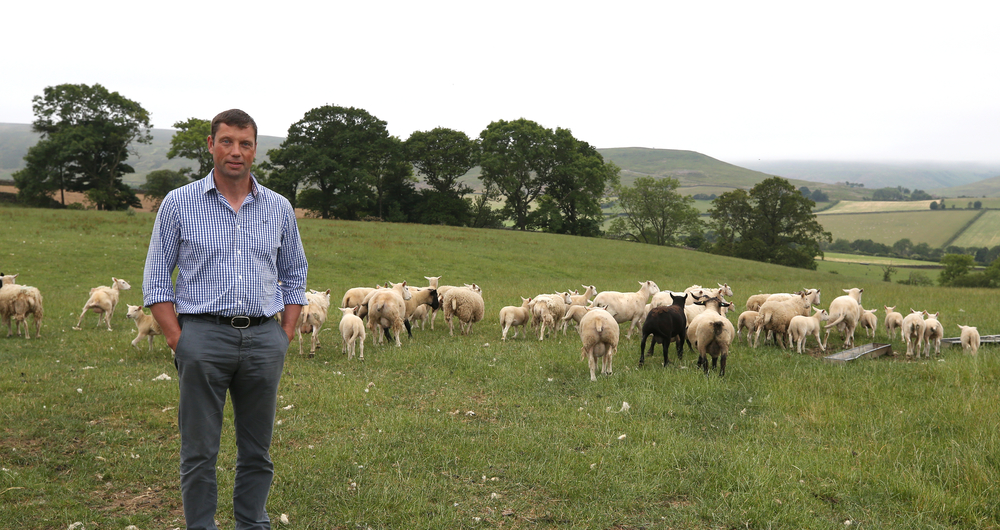After the news of trade negotiations between Australia and the UK hit the headlines, I have been asked multiple times what my views are. There is no doubt in my mind where I stand: this could be a very bad deal for British livestock farmers if adequate safeguards are not put in place.
We must know our worth. UK farming has worked tirelessly to build up its reputation as producing high-quality, high-welfare, climate-friendly and sustainably produced beef and lamb. Our production standards are underpinned by the most robust regulation and assurance, which cover everything from animal traceability, health, welfare, use of medicines and the environment.
There is no comparison whatsoever between the robust production methods in this country and in Australia – they simply do not compare due to sheer size and scale.
A matter of scale
Australia was the world’s biggest beef exporter in 2019 (by value) and second-largest (behind Brazil) in terms of volume. It exports around 70% of its beef production. The scale of its export operation is phenomenal, with exports alone generating more than double the total output of the UK’s beef sector (AUD $10.8bn v £2.75bn).
The scale, and lower regulatory and assurance burden, means that the costs of production are significantly lower than those in the UK. This all points towards the potential for our market to be massively undermined.
Without doubt, Australian product would look to displace Irish beef and New Zealand lamb, and as supply chain relationships developed, it would put pressure on domestic farmgate returns at a time when we have the uncertainty of new support arrangements for UK agriculture.
Let’s not forget the issues with standards. Large-scale feedlots finishing up to 50,000 head on a single site would be unacceptable here, both morally and environmentally. But we know that more than 40% of Australian beef cattle are finished in such systems and would be destined for the UK market.
There is widespread use of hormone growth promoter, and we welcome commitments from the government that beef from these animals will not enter our market. However, given the lack of lifetime traceability in Australia, we question how robust these guarantees really are.
All of this, along with the use of antibiotics as growth promoters, feed additives that are banned in the UK and some plant protection products, make it a very unfair playing field and could leave our farmers on a knife-edge.

Calling for equal standards
We take health and welfare very seriously. We know that the UK government is looking to ban live exports for slaughter and further fattening, yet Australia exports hundreds of thousands of live cattle and over a million sheep on long sea journeys to Asia and the Middle East every year. This is clearly double standards.
Even if there was – as the Secretary of State Liz Truss suggests – a long transition to allow us to adapt to the increased competition, it would be a massive blow to our industry, which ultimately needs long-term certainty and the confidence to invest in businesses.
Without doubt, this deal may well set the standard for future deals and we could see the UK government opening our market to others. I fear that the cumulative impact on our red meat sectors could be extremely damaging.
We already know that the Australians openly admit to wanting to target our highly prized eating-out-of-home market. Although it is extremely unlikely that we will see large volumes of manufacturing beef, the risk of just a few thousand tonnes of boneless strip loins, rumps and fillets, without sufficient safeguards in place, would be extremely damaging because they would displace a relatively high volume of British beef, resulting in huge carcass balance issues where some of the animal has a viable market and some hasn’t.
We need a fair deal
Australian negotiators have said we have nothing to fear, as they have a diverse range of lucrative markets elsewhere in the world.
My question is if this is the case, why would they want to send thousands of tonnes here? Volume, however, is not the only issue to be concerned about – it is the type and value that comes, which will, put simply, undermine British beef and lamb.
It is clear to me that there are no reciprocal opportunities for UK livestock production. Australian import tariffs for meat are already set at zero – it is difficult to see much opportunity to increase our exports because of the lack of demand from a country that produces much more beef than it consumes already as well as non-tariff barriers.
This is a case I will make on behalf of all our beef and sheep members time and time again. This deal, as it stands, is a bad deal for livestock farmers, and the government must consider the impacts on livestock producers here at home, especially if it wants to fulfil its ambitions of a global Britain.
More from NFUonline:

